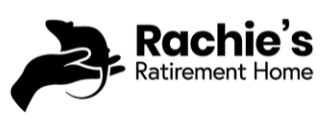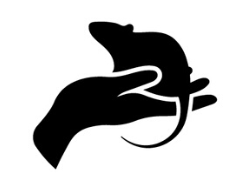The Ethics of Rescuing and Releasing Wild Rats
Many of us will find ourselves in the position of finding an injured or sick wild rat, and may need to ask ourselves a few hard questions. Do we leave it and let nature take its course? Do we care for it and release it? Or do we take it to a vet and leave it in their hands? In this article we hope to convince you that the right course of action is to take an injured wild rat to the vet, rather than try look after it at home and then release it back into the wild. We understand the desire to look after an animal and see it released back into the wild, but in the case of wild rats, it is not beneficial to the individual rat or the larger ecosystem in which it lives.
Firstly I would like to address the concern many have, which is that a wild rat taken to the vet will be euthanised. Many would rather avoid this, and take the rat home to care for it and release it when it is well. Looking after animals is a great and kind thing to do, and we would never begrudge the instinct to care for a rat. However, I would like to give you some arguments that a swift death may be the more ethical action to take.
In the case somebody does treat and release a wild rat, things may end up worse for the rat in the long run. Rats are colony creatures, meaning they need to live in their colony with their family in order to live a good life. When a rat is separated from their colony by distance or time, simply putting them back where you found them does not guarantee that they will make their way back into the colony. If you managed to rear a wild baby and keep it, you would in the same way be taking it away from a healthy social pool.
But we must also acknowledge that this issue goes beyond the needs of individual rats. We need to always look at the larger picture, the ecosystem in which we live. A healthy ecosystem is full of extrinsic value, meaning that it provides many boons to us as long as it functions correctly. For us and all other animals to live healthy and meaningful lives, we need a healthy ecosystem in which to live. Black rats and brown rats are both non-native invasive species within Australia. They have very successfully bred and integrated themselves into the Australian ecosystem, which has had unfortunate effects on native animal populations, throwing the ecosystem out of balance.
The introduced rats easily outcompete the native fauna, as they are fiercely competitive, have generalised diets and the capacity to breed in large numbers. The effect this has on native fauna is that they are driven out of their habitats by these rats, which breed huge numbers and eat most of the available food in the area. Even more dire, species driven out of their habitats and robbed of food will often be unable to sustain their populations, and therefore may die in large numbers.
With wild, non-native rat populations growing out of control, ecosystem functions and the fabulous benefits it provides us all are jeopardised. To care for and release a wild rat would be reintroducing an animal to the ecosystem that provides little benefit and a suite of costs that make our ecosystem worse for wear.
Saving and keeping, or releasing wild rats provides little benefit to the rat in question, nor to the greater ecosystem we all live in. Please take any sick or injured wild rats to a vet to be humanely euthanised. We all love rats, and this is a painful topic, but one we believe is important to discuss.


